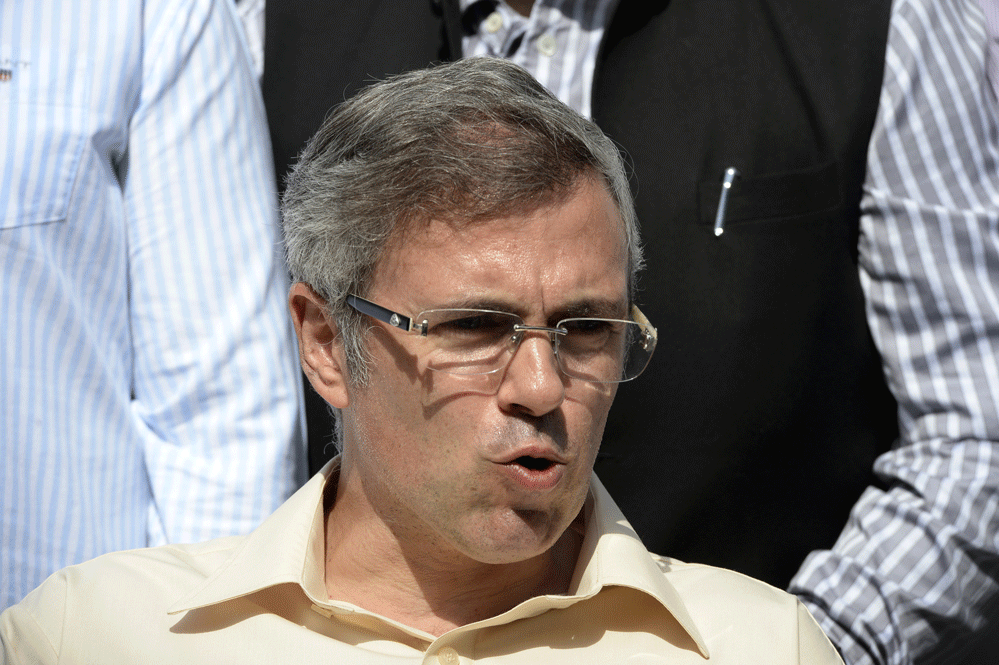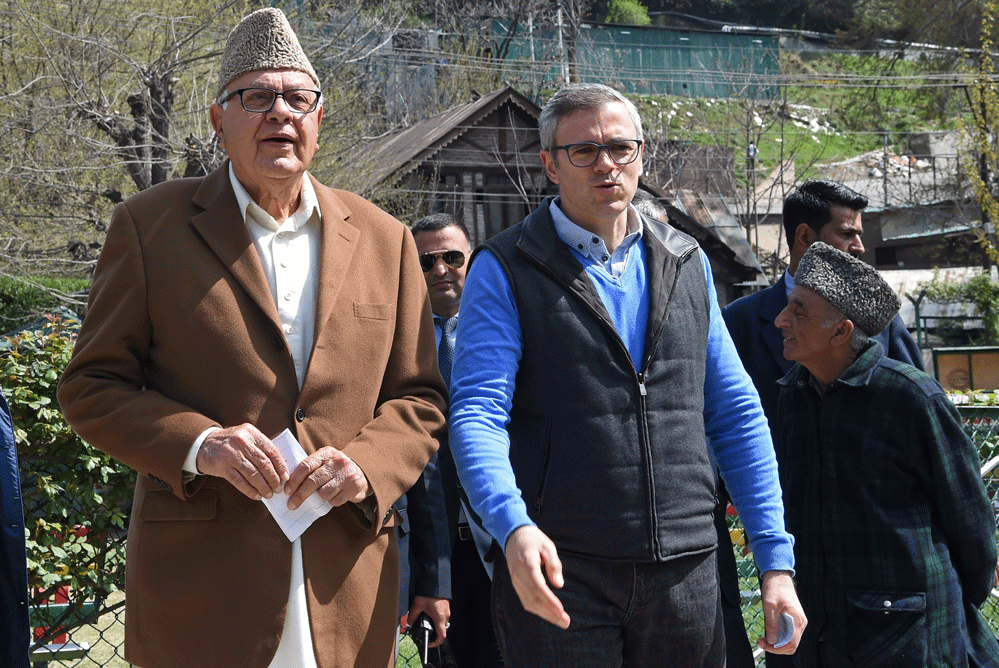“We are committed to preserving the special status of Jammu and Kashmir” Omar Abdullah
By Mehmal Sarfraz | Interview | Published 6 years ago
 Your party has a long record of participating in rigged elections (1987 and 1996), and there are repeated allegations that you have used repressive measures when in power. What do you have to say?
Your party has a long record of participating in rigged elections (1987 and 1996), and there are repeated allegations that you have used repressive measures when in power. What do you have to say?
Absolutely not. Both allegations are unsubstantiated and wrong. From time to time, this has been the line taken by Pakistan and its proxies to question the validity of elections in Jammu and Kashmir. Yes, there were some fingers pointed towards the elections in 1987, which we have responded to ad nauseam. I don’t feel the need to get into that debate all over again. As for 1996, I can understand why people on the other side of the border would have problems with participation in those elections, but they were free and fair elections, they were elections in which people participated and voted. Now, if you have a problem with those elections simply because my party – the National Conference – won, then there is not very much I can say about that. As far as using repressive measures in power is concerned, I’d appreciate it if you could substantiate that allegation. The fact is that successive governments after 1996 have been forced to fight against terror and against organisations that have carried out violence in Jammu and Kashmir, but I categorically deny the allegation that the National Conference has used repressive measures to remain in power because that is absolutely untrue. We have, if anything, sought to reduce the presence of security forces in Jammu and Kashmir. We have eased,or softened some of the more draconian laws that have been in place here. My own government was responsible for demolishing more than 40 security force bunkers in Jammu and Kashmir while I was Chief Minister and also responsible for thinning out the presence of security forces to a very large extent. So the very premise of your question, I think, is open to debate.
You have partnered with the BJP in the past. What guarantees can you offer that will make people believe you won’t do it for power again?
Yes, I was a part of the NDA government that was led by Atal Bihari Vajpayee, but I wouldn’t call us allies of the BJP. Allies of the BJP is what Mehbooba Mufti and her PDP were. They partnered with the BJP and facilitated their entry and that of the RSS into Jammu and Kashmir. They took votes from the people of Jammu and Kashmir, particularly from the Kashmir Valley and South Kashmir, claiming that those votes were to keep the BJP out. They got support from the Jamaat-e-Islami (JI) [Kashmir]. The Jamaat-e-Islami cadres are known to have voted for the PDP both, in the parliamentary and the assembly election of 2014, because the PDP assured the JI that their vote would go against the BJP. But having taken advantage of those votes, they promptly went and joined hands with the BJP — the same BJP that has cracked down on the Jamaat-e-Islami and on other separatist forces. We are unapologetic about our tie-up with Atal Bihari Vajpayee because he was a statesman who worked hard to resolve the problem of Jammu and Kashmir. He was the Prime Minister who coined the phrase ‘Insaaniyat, Jamhooriyat, Kashmiriyat’ (humanity, democracy, Kashmiri nationhood) as the framework within which the issue of Jammu and Kashmir would be resolved. He is also the Prime Minister who extended the hand of friendship to Pakistan from Srinagar in a public meeting. I remember his famous speech from Tangdhar in Northern Kashmir when he stood very close to the Line of Control and said, ‘we can change our friends but we cannot change our neighbours,’ while talking about improving the relationship between India and Pakistan. So yes, we were a part of the NDA that was led by Atal Bihari Vajpayee, but we have been steadfast in our opposition to the BJP led by Prime Minister Modi and Amit Shah, and we are fighting this election against the BJP, both within Jammu and Kashmir, as well as campaigning to assist other like-minded parties in other parts of the country.

Omar with his father, Farooq Abdullah, the President of the National Conference.
Is there any possibility of making a compact with the PDP to protect Kashmir’s constitutional rights which you say are in danger?
We are committed to preserving and protecting the special status of Jammu and Kashmir. We will do that by fighting to protect it in the courts. We will do it by fighting to protect it in the court of public opinion. We are fighting the current Parliamentary elections and we will fight the forthcoming Assembly elections on the plank of protecting and strengthening Jammu and Kashmir’s special status. We do not believe that a tie-up with the PDP is necessary to protect Jammu and Kashmir’s special status.
Do you not agree that the so-called mainstream parties in Jammu and Kashmir have alienated themselves from public sentiment completely?
No, I do not believe the so-called mainstream parties are alienated. Absolutely not — there is no basis for such a statement. In fact, if anything, the response that we have been getting to our campaign in the elections, the way in which people are coming out and participating in the ongoing process, reassures us about the place that mainstream parties have in Jammu and Kashmir, and I am not just talking about the National Conference; I am talking about all the mainstream political parties here. Actually, if anyone needs to feel threatened about their place in Jammu and Kashmir today, it is actually the separatist leadership who started out by talking about Jammu and Kashmir as a political problem, but increasingly find themselves sidelined by those forces that are seeking to project Jammu and Kashmir as a religious problem. Therefore, it is not the mainstream political parties that need to worry about the direction in which Jammu and Kashmir is heading right now, but the separatist parties and the separatist organisations. Because the more Jammu and Kashmir’s problem and the issue of Jammu and Kashmir is sought to be projected in a religious light as opposed to a political one, it is the Hurriyat Conference and its
offshoots that will find their space shrinking.


